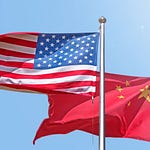Key Takeaways of the free version based on the Rodium report on MIC 2025 and DSET report on China legacy chips:
Mixed Results for MIC2025: China has made progress in reducing import dependence and increasing domestic market share in some sectors (like EVs) through state-driven policies and financial support. However, it has fallen short in other key areas, particularly in advanced chip technology.
Focus on Foundational Chips: There's a strong emphasis on expanding China's capacity in mature node (foundational) chips, with a strategy aimed at dominating the global market for electronic end products.
State Intervention and Market Distortion: China's approach involves significant state subsidies, industrial funding, and regulations that create market barriers and raise concerns about efficiency, sustainability, and fair competition.
Geopolitical Implications: China's tech ambitions, especially in semiconductors, have major geopolitical and national security implications, raising concerns about supply chain vulnerabilities and potential leverage.
The Challenge of Response: The international community faces the challenge of how to respond effectively, balancing the need to compete with China while building resilient and diverse supply chains.
So, has China's tech drive rewritten the rules of the game? The answer is complex, and the stakes are undeniably high. The world watches as the future of tech, trade, and security hangs in the balance.
Deep Dive Version:












